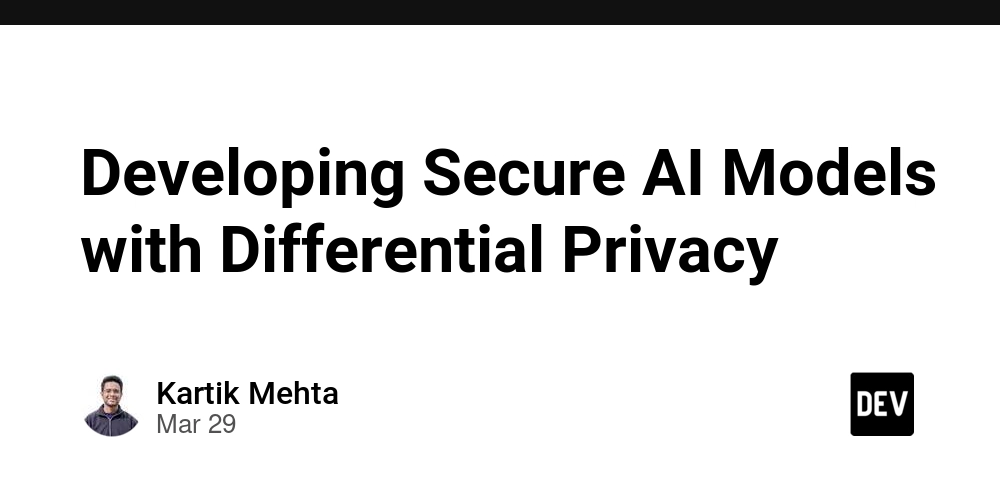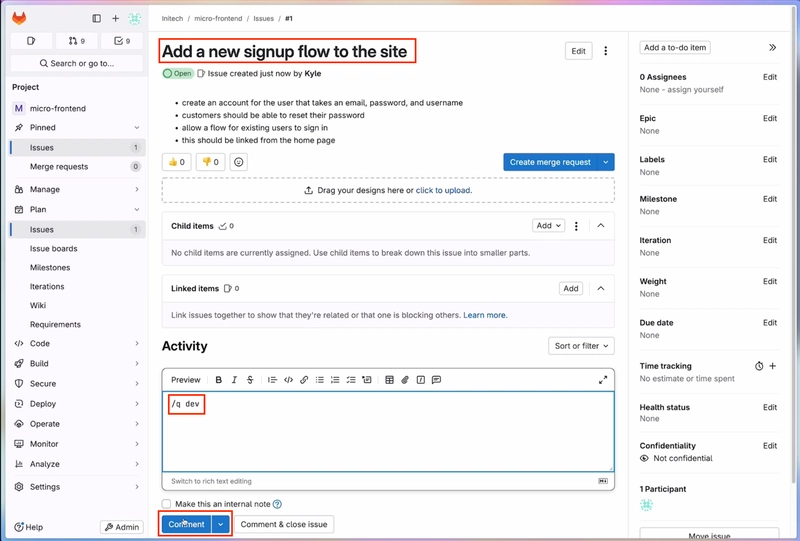Developing Secure AI Models with Differential Privacy
Introduction: Artificial Intelligence (AI) has become an integral part of our daily lives, from chatbots to self-driving cars, it is continuously evolving and improving our efficiency. With the rapid growth of AI, comes growing concerns for data privacy and security. To address these concerns, Differential Privacy (DP) has emerged as a prominent technique for developing secure AI models. Advantages of Differential Privacy: Protection of Sensitive Data: DP allows for the protection of sensitive data by adding noise to the data, thus preserving individual privacy while still providing accurate results. Trade-off between Privacy and Utility: With DP, there is a trade-off between privacy and utility, allowing for the optimization of both factors. Robust Against Attacks: DP provides robustness against targeted attacks, as the added noise prevents attackers from identifying individual data. Compliance with Regulations: With the increasing regulations on data privacy, implementing DP in AI models ensures compliance and avoids potential legal issues. Disadvantages of Differential Privacy: Increased Complexity: Implementing DP in AI models requires additional algorithms and computations, thus increasing the complexity of the model. Decreased Accuracy: The added noise in DP can result in a decrease in accuracy, which may not be suitable for sensitive applications that require precise results. Features of Differential Privacy: Proven Effectiveness: DP has been proven effective in various applications, including health care, finance, and social media. Flexibility: It can be customized according to the needs of different applications and can be applied to different types of data. Conclusion: Differential Privacy provides a promising approach for developing secure AI models by balancing individual privacy and utility. While it has its limitations, its advantages make it a valuable technique for protecting sensitive data. As AI continues to advance, integrating DP into the development process will play a crucial role in ensuring the privacy and security of individuals' data.

Introduction:
Artificial Intelligence (AI) has become an integral part of our daily lives, from chatbots to self-driving cars, it is continuously evolving and improving our efficiency. With the rapid growth of AI, comes growing concerns for data privacy and security. To address these concerns, Differential Privacy (DP) has emerged as a prominent technique for developing secure AI models.
Advantages of Differential Privacy:
Protection of Sensitive Data: DP allows for the protection of sensitive data by adding noise to the data, thus preserving individual privacy while still providing accurate results.
Trade-off between Privacy and Utility: With DP, there is a trade-off between privacy and utility, allowing for the optimization of both factors.
Robust Against Attacks: DP provides robustness against targeted attacks, as the added noise prevents attackers from identifying individual data.
Compliance with Regulations: With the increasing regulations on data privacy, implementing DP in AI models ensures compliance and avoids potential legal issues.
Disadvantages of Differential Privacy:
Increased Complexity: Implementing DP in AI models requires additional algorithms and computations, thus increasing the complexity of the model.
Decreased Accuracy: The added noise in DP can result in a decrease in accuracy, which may not be suitable for sensitive applications that require precise results.
Features of Differential Privacy:
Proven Effectiveness: DP has been proven effective in various applications, including health care, finance, and social media.
Flexibility: It can be customized according to the needs of different applications and can be applied to different types of data.
Conclusion:
Differential Privacy provides a promising approach for developing secure AI models by balancing individual privacy and utility. While it has its limitations, its advantages make it a valuable technique for protecting sensitive data. As AI continues to advance, integrating DP into the development process will play a crucial role in ensuring the privacy and security of individuals' data.











































































